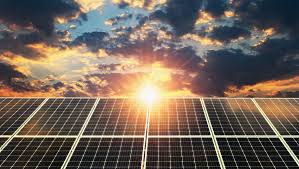- As the world deals with climate change, it’s becoming clearer that renewable energy sources like solar power are necessary to reducing greenhouse gas emissions. A recent report from the Intergovernmental Panel on Climate Change (IPCC), solar power is the fastest-growing source of electricity worldwide. And the economic benefits of solar energy are becoming more widely known, with homeowners, businesses, and communities seeing some serious cost savings when it comes to their utility bills, tax incentives, and the creation of jobs.
What Are the Economic Benefits of Solar Energy?
Solar energy is rapidly becoming one of the most practical sources of electricity, and its benefits reach far beyond the environmental impact. Also, the economic benefits of solar panels are significant. Jobs are being created and home and commercial real estate values are on the rise.
The U.S solar industry employed 255.037 workers as of 2021, according to the national solar jobs census. This number is expected to grow in years to come. Plus, solar energy can help shore up local economies by reducing the reliance on foreign oil and advancing the need for energy independence. In the sections below, we’ll dive into the economic advantages or benefits of solar panels in more detail
- Overall, the economic benefits of installing solar panels make them an attractive investment for homeowners, businesses, and communities looking to save money, increase property value, and contribute to a more sustainable future.+











